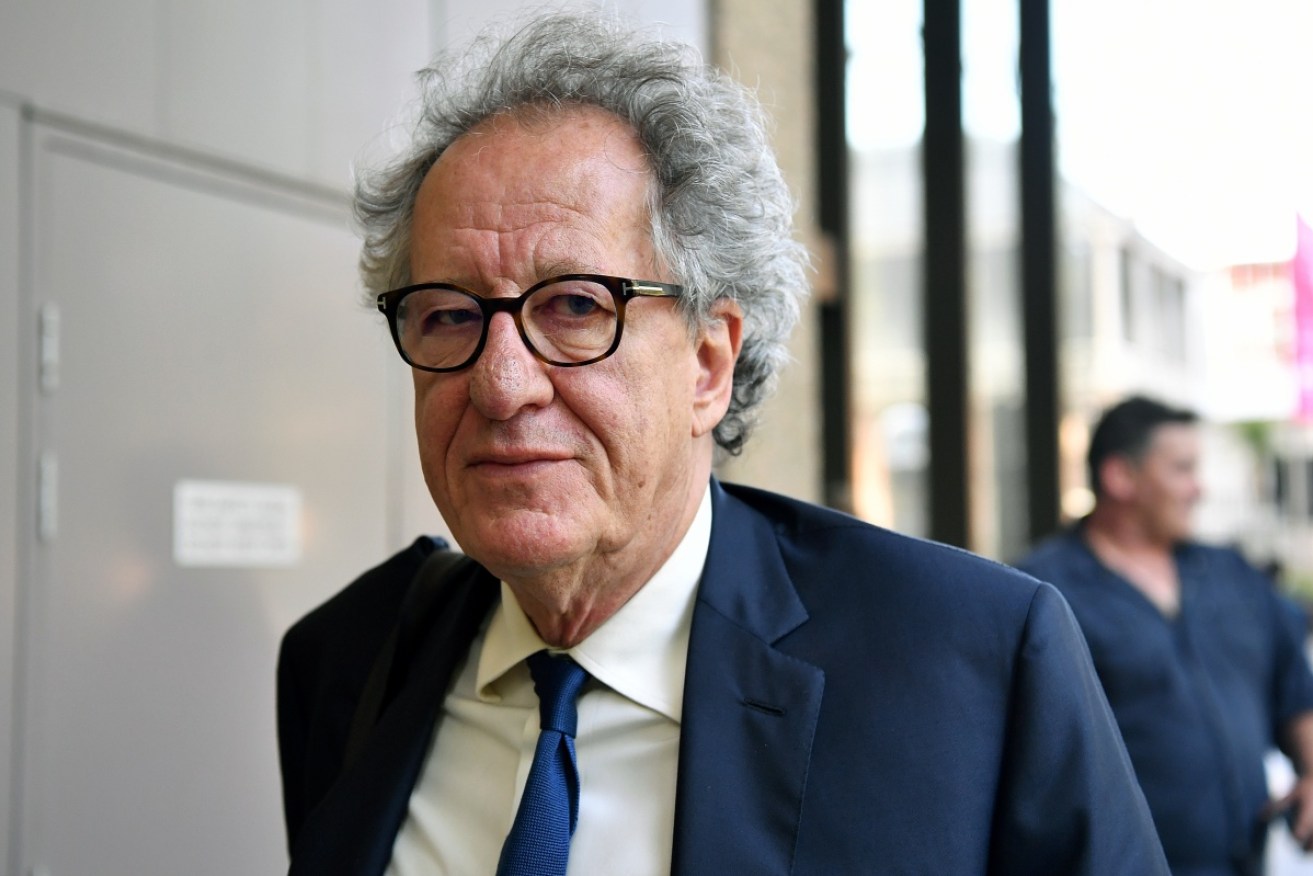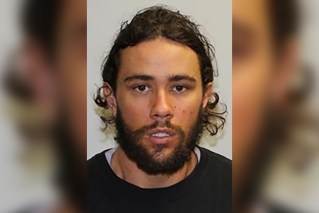Geoffrey Rush’s defamation trial provides tears, drama and even a song as theatre royalty testify

The Daily Telegraph's defamation payout to Geoffrey Rush was calculated at $2.9 million. Photo: AAP
Before Justice Michael Wigney entered the Federal Court in Sydney on Monday, an official told a packed public gallery not to talk, or take photos.
“Also, please turn your phones off,” they added.
While similar announcements are made in the theatre, this was a far more serious setting.
Some of Australia’s best-known actors and directors gave evidence during the first week of Geoffrey Rush’s defamation case, and there was drama in the witness box.
The Oscar-winner is suing Nationwide News – publisher of Sydney’s The Daily Telegraph newspaper – and journalist Jonathan Moran over stories published late last year he claims were defamatory.
The articles suggested Mr Rush behaved inappropriately towards a younger colleague, later revealed to be Eryn Jean Norvill, during a Sydney Theatre Company (STC) production of King Lear in 2015-16.
Mr Moran was described by Mr Rush’s lawyer, Bruce McClintock SC, as “a gossip columnist” who was “desperate for a story”.
Mr Rush was examined, and cross-examined, over three days — but more on that later.
His actor wife, Jane Menelaus, broke down in the witness box, claiming that the newspaper stories have made her husband of 30 years retreat from the world.
High-profile theatre director Neil Armfield – who oversaw the STC production and has worked with Mr Rush on 22 projects – told the court his friend was one of the world’s greatest actors.

Film producer Robin Kershaw, actress Helen Buday and Jane Menelaus, Geoffrey Rush’s wife, leave the Federal Court in Sydney on Thursday. Photo: AAP
But amid the gushing tributes, the most dramatic testimony was delivered by actor Helen Buday, who had played King Lear’s daughter Goneril, and burst into song in the witness box.
When asked if she had heard Mr Rush tell Ms Norvill she looked “scrumptious”, Ms Buday started singing Truly Scrumptious from the 1960s movie Chitty Chitty Bang Bang.
Ms Buday described a text message Mr Rush had allegedly sent Ms Norvill with an emoji with its tongue hanging out in it as “funny and delightful”.
She then acted the emoji out in court, as Mr Rush sat with his head in his hands.
When the newspaper’s barrister Tom Blackburn SC asked what she was laughing at, Ms Buday replied: “You make me laugh.”
A slightly bewildered Justice Wigney quipped Ms Buday had given a very dramatic reading of the oath, but then directed her to answer the questions she was being asked.
She was reluctant to leave the witness box and started crying loudly outside the courtroom.
Rush takes to stand hoping to bring ‘balance to the scales’
The gallery was mesmerised by Mr Rush’s three days of anecdotes from his 50-year career that has included acting’s triple crown – an Oscar, an Emmy Award and a Tony Award.
He even talked about his early days as a student in Queensland, noting that before he got into acting he thought he would be “doomed” to work for the ABC or teach.
In King Lear, Mr Rush was in the lead role and Ms Norvill was playing the king’s daughter Cordelia.
Mr Rush told the court he could not recall telling Ms Norvill she looked “scrumptious” during rehearsals but admitted he might have used the word “yummy”.
He said he it was probably because he was in a chirpy mood and trying to bring energy to the rehearsal room because the scenes he was about to rehearse with Ms Norvill would be harrowing and dramatic.
The actor denied deliberately touching her breasts as he lifted her up on stage in a scene where Lear mourns over Cordelia’s body.
Mr Rush said live entertainment required some physical contact and he had often wondered when watching the ballet if it might be banned one day because of the high-level of physical contact involved.
Mr Rush described his relationship with Ms Norvill during the production as professional but whimsical.
“We really only encountered each other at after-work suppers and would exchange the odd text,” he said.
He said by bringing the matter to court, he had hoped to bring some “balance to the scales” for the story, which made worldwide news.
“I do feel as if my identity, my sense of self, my career has been under such pejorative media coverage,” he said.
Trevor Smith gave evidence via video link from London that he was Mr Rush’s “bestie” and had first met him in a rock opera in 1970.
He said Mr Rush was too scared to go out after the stories were published, fearing people would spit on him.
Director Simon Phillips and actor John Gaden also gave evidence.

Rush on his way into court with friend film maker Fred Schepisi. Photo: AAP
The week wrapped up with movie director Fred Schepisi, whose work includes The Devil’s Playground and The Chant of Jimmy Blacksmith, singing Mr Rush’s praises.
The director said The Daily Telegraph’s allegations killed off Mr Rush’s career in Hollywood and unfairly put him in the league as some “disgusting people” during the Me Too era
Mr Schepisi said he considered Mr Rush as famous as household names like Harrison Ford and Clint Eastwood.
He prepared an expert report on Mr Rush’s future prospects in the movie industry, and said the 67-year-old had a long career ahead of him.
“He’s always pushing himself, people of real talent are always trying to get better,” he said.
“He could work non-stop.”
“I’m telling you, you don’t know how popular he is.”
The hearing continues on Monday, when Ms Norvill is expected to give evidence.








